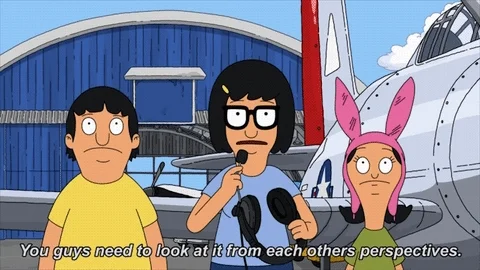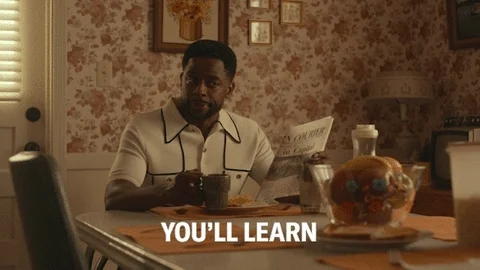
This logo isn't an ad or affiliate link. It's an organization that shares in our mission, and empowered the authors to share their insights in Byte form.
Rumie vets Bytes for compliance with our
Standards.
The organization is responsible for the completeness and reliability of the content.
Learn more
about how Rumie works with partners.
As a high school senior, I experienced my first big failure: I was rejected from my top choice (and at that point, only) college. Before that moment, I’d never worked SO hard for something and not benefitted from the fruit of that labor. I was crushed.

But had I gotten in and accepted an early decision offer to that school, I would’ve missed the huge scholarship that was later to come my way.
Let me help you reframe your thinking about your next failure: rejection is merely a redirection.
What is failure?
We all have goals. Some are self-created, and others are imposed by our parents, teachers, and even society. But what happens when we don't achieve something as planned?

An omission of occurrence or performance
A lack of success
A falling short
But all of these are relative to an expectation. And the good news is that expectations can be constantly readjusted.
Did you know?
Author Mark Manson goes in-depth into the psychology of failure in his article 10 Reasons Why You Fail. Each reason is actually a strategy for avoiding pain!
Benefit #1: Humility
Failure can result in many different emotions, including:
shame
embarrassment
anxiety
grief
disappointment
fear
anger
hopelessness
All feelings are valid and shouldn't be dismissed or minimized. You’ll need to acknowledge, process, and work through these emotions.

It will be painful, but you'll get through it. And at the end of that road is humility. Being a more humble version of yourself has tons of benefits. We could all use a good ego check every now and then.
You can humbly share your failure story with others. Expressing vulnerability is actually a sign of strength!
Benefit #2: Empathy for Others
Failure builds empathy, which is what makes us human! We can connect with others who have been through similar experiences, or at least understand what it might feel like to go through it.

When you have experienced a failure, you can relate to otherswho have felt this kind of pain. The next time you see someone struggling, you can withhold judgment because you understand what it's like to struggle, too.
Quiz
What is the best way to show empathy towards a friend who shares with you that they feel like a failure?
Empathy requires stepping into someone else's shoes to experience things from their perspective.
Benefit #3: Opportunities for Reflection & Personal Growth
Moments of failure are the perfect opportunity for thoughtful reflection.

Find a deeper meaning from your failure by asking yourself these questions:
Why was this opportunity important to me in the first place?
What are potential alternative ways of achieving the same outcome?
What did I still do well, despite the failure? What small wins can I be proud of?
What will this failure push me to improve?
How can I practice gratitude for what I've already achieved?
Growth isn't possible without self-reflection. So think about what happened, and how you can improve or change for next time.
Quiz
Why is self-reflection an important part of experiencing a failure?
You need to take time to reflect on your failures in order to grow from them, but make sure you don't dwell on them!
Benefit #4: Practicing Self-Compassion
After you've processed some of the difficult feelings surrounding your failure and thoughtfully reflected on the experience, it's time to start healing. Self-compassion is a fancy way of saying, "Cut yourself some slack!"
 Photo by Tim Mossholder on Unsplash
Photo by Tim Mossholder on UnsplashBeing kind to yourself isn't always easy, but it's important. Treat yourself as you would a friend going through the experience. We're often our own toughest critics.
Did you know?
Check out this Byte about improving your self-care practices.
Benefit #5: Develop Resilience & Grit
Perhaps the most valuable benefit of failure is that it forces you to develop resilience and grit. Many successful people fail initially. Failing early and often can help you develop somewhat of an immunity to rejection, which actually makes you stronger.
In the TedTalk below, psychologist Angela Lee Duckworth explains how grit may be the single biggest predictor of academic and professional success.
Quiz
Ms. Williams is trying to teach her students about grit. Which synonym could she use to explain it to her kids?
Grit is unwavering perseverance towards a specific goal, in spite of all obstacles.
Take Action
Feeling like a failure is painful but you will get through it.

As Thomas Edison once said, "I have not failed. I've just found 10,000 ways that won't work."''
This Byte has been authored by
Laura Campion
Instructional Designer & Content Creator
M. Ed.
This Byte has been reviewed by
Lisa VanVleet
PhD, LCSW-S